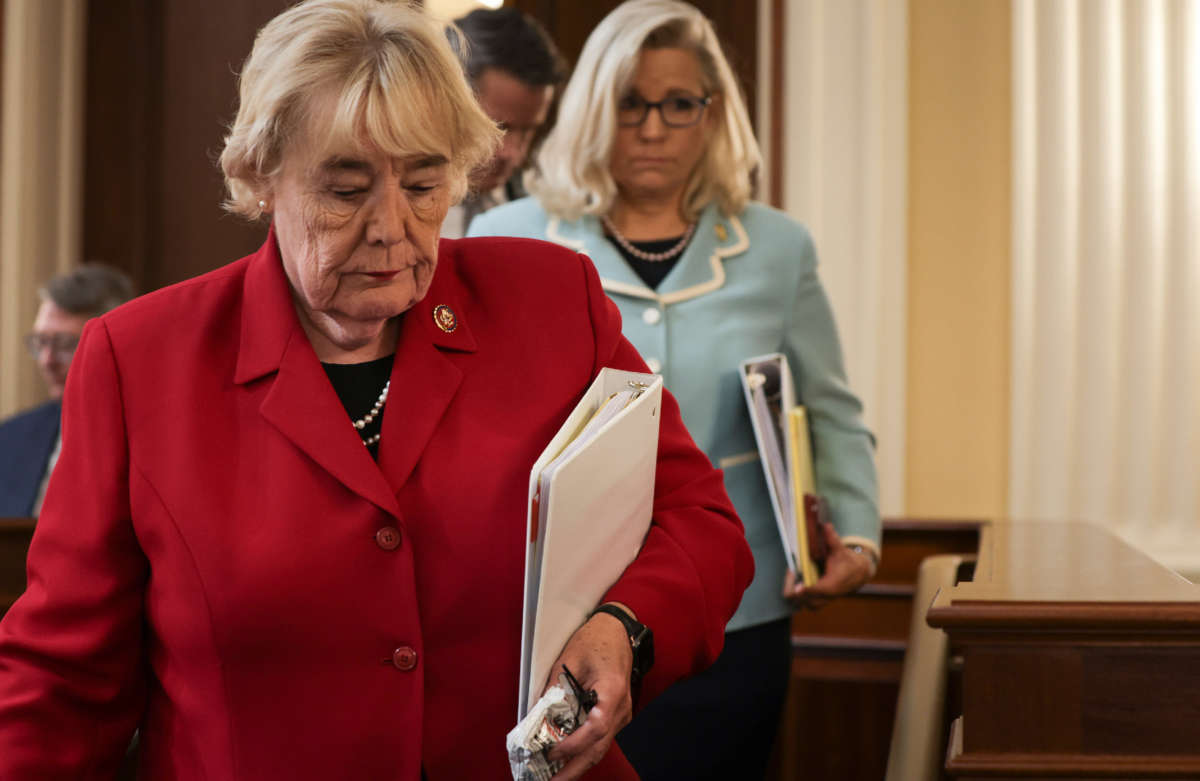Two members of the House select committee investigating the January 6, 2021, attack on the U.S. Capitol submitted a bill that would reform the count of Electoral College votes.
The Presidential Election Reform Act — sponsored by Rep. Liz Cheney (R-Wyoming) and Rep. Zoe Lofgren (D-California) — would change aspects of the Electoral Count Act, making it more difficult for elected officials to overturn the will of voters.
“Our proposal is intended to preserve the rule of law for all future presidential elections by ensuring that self-interested politicians cannot steal from the people the guarantee that our government derives its power from the consent of the governed,” Cheney and Lofgren wrote in an op-ed that was published in The Wall Street Journal over the weekend.
Their legislation takes a multi-pronged approach to prevent another attempt to overturn the presidential election. It makes clear, for example, that the role of the vice president in counting the electors in the Electoral College is purely “ministerial” — addressing attempts by former President Donald Trump and his allies to get then-Vice President Mike Pence to reject certain states’ electors nearly two years ago.
The bill would also increase the number of lawmakers needed to make a formal objection to a state’s slate of electors. Currently, only one member from each chamber of Congress is needed to make an objection, obligating both chambers to have a formal discussion and vote on whether those votes should be rejected. Under Cheney’s and Lofgren’s plan, the threshold to object and force such a vote would increase, to one-third of the members in each of the two houses.
Additionally, the bill seeks to prevent fake electors from being counted as equal to real ones in the Electoral College certification process — the same scheme which Trump and his allies sought to use after he lost in 2020 to President Joe Biden. The Presidential Election Reform Act would prohibit those actions outright, requiring “a single, accurate certificate from each state” to be submitted and making it explicitly illegal to try and submit fake ones.
The legislation could pass in the Democratic-controlled House as soon as this week, as the House Rules Committee is considering the legislation on Tuesday. If members of the committee vote to forward it on, it could receive a full House vote as soon as Wednesday.
The bill will likely receive some bipartisan support in the Senate. It’s unclear, however, whether 10 Republican senators would join with Democrats to break a probable filibuster in that chamber.
Join us in defending the truth before it’s too late
The future of independent journalism is uncertain, and the consequences of losing it are too grave to ignore. To ensure Truthout remains safe, strong, and free, we need to raise $43,000 in the next 6 days. Every dollar raised goes directly toward the costs of producing news you can trust.
Please give what you can — because by supporting us with a tax-deductible donation, you’re not just preserving a source of news, you’re helping to safeguard what’s left of our democracy.
